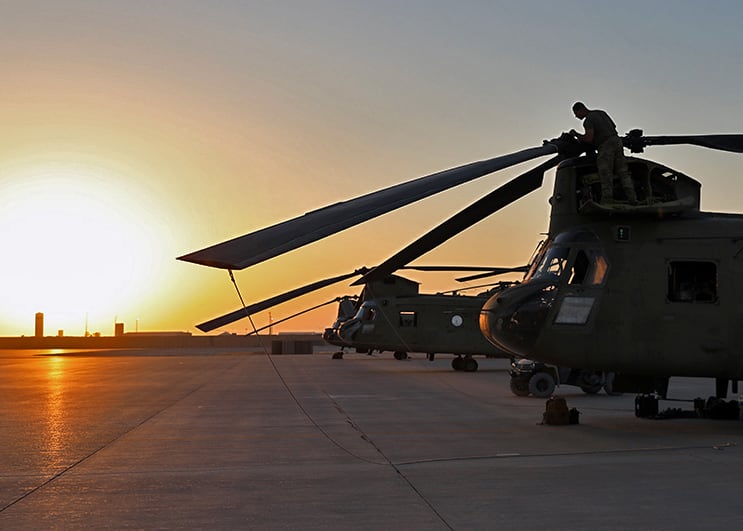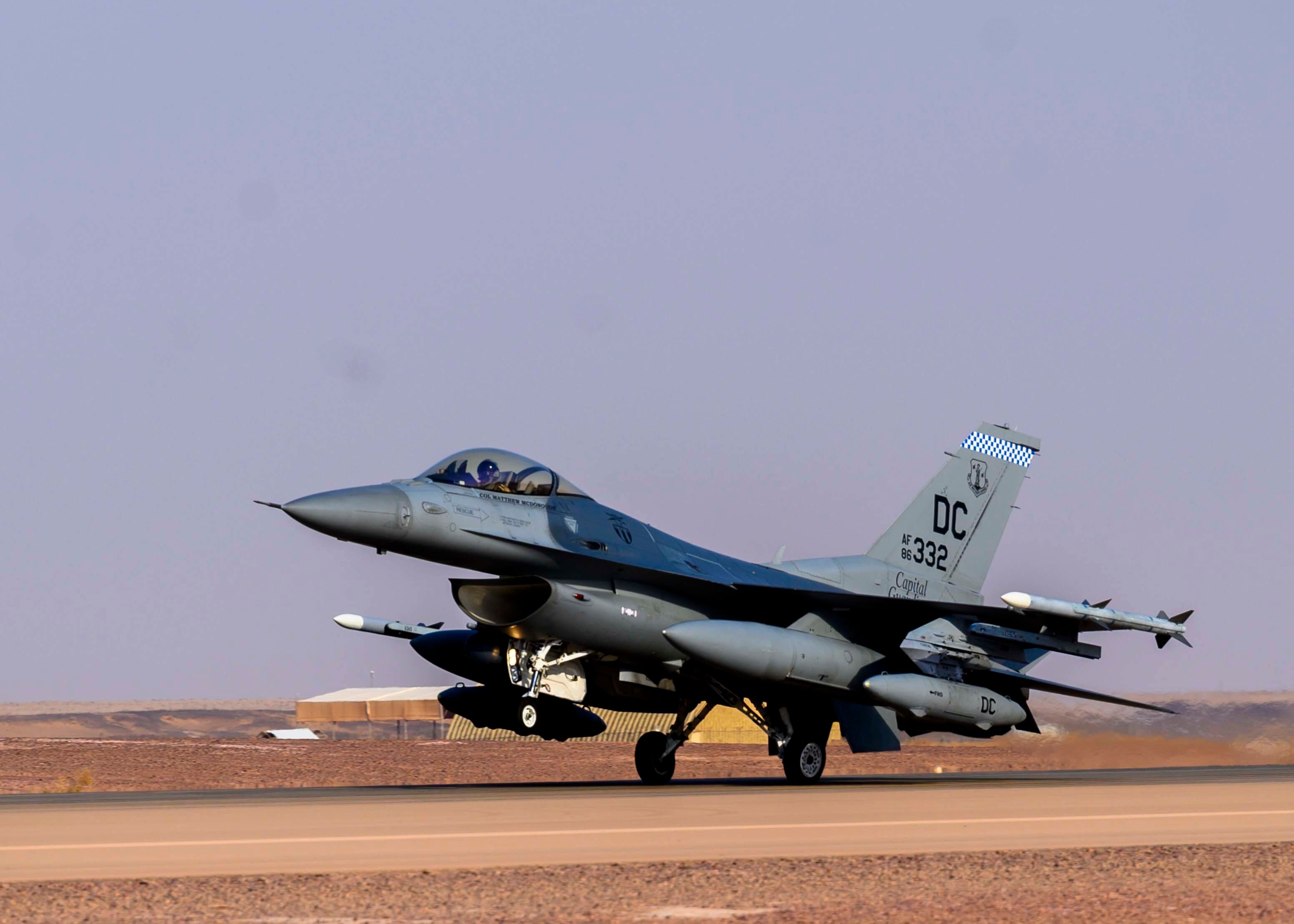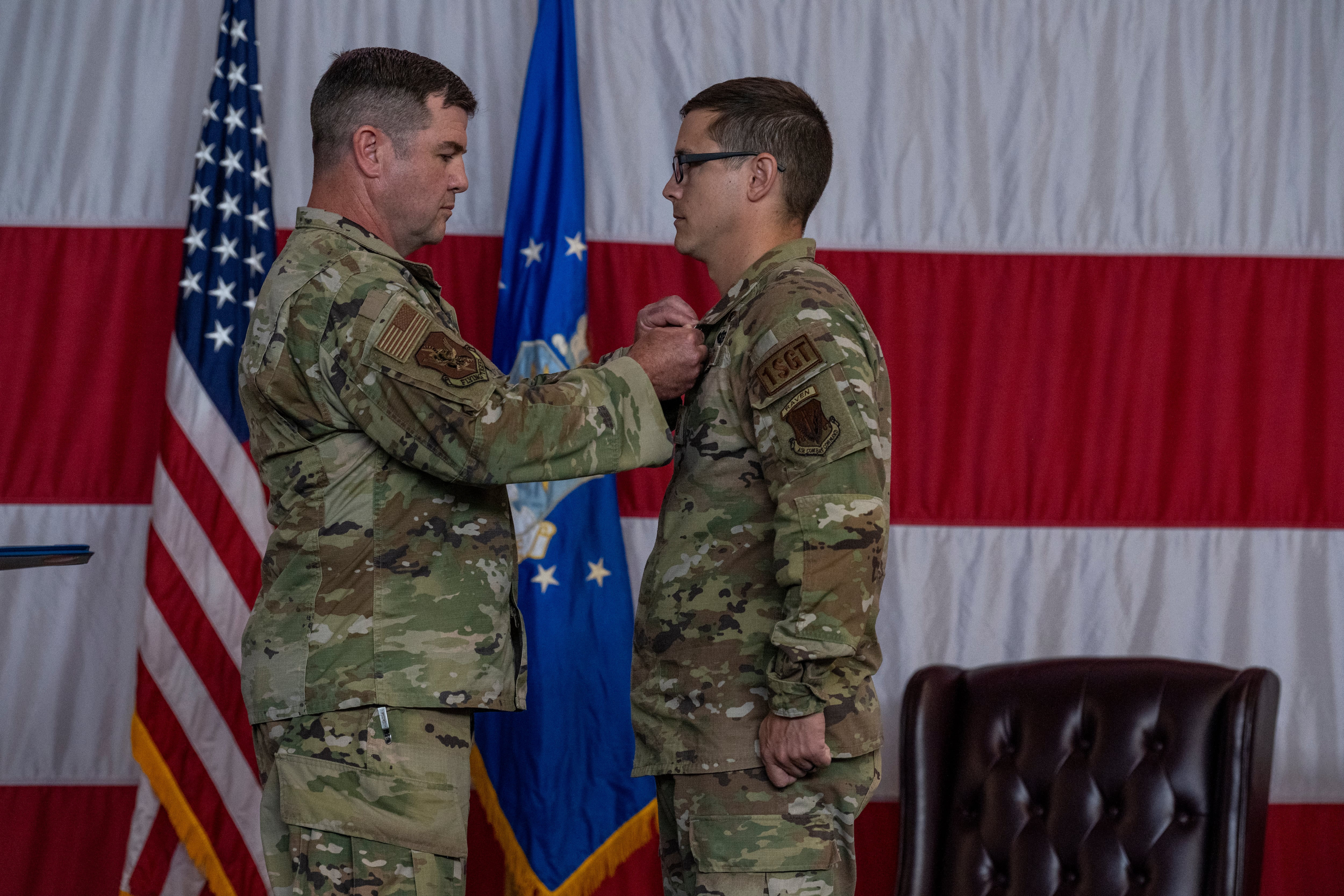When he arrived at Iraq’s Al Asad Air Base in April 2023, Master Sgt. Peter Pease began preparing his team of security forces to expect the unexpected. Then the unexpected came true.
On Oct. 18, with less than three weeks to go in Pease’s deployment, a drone attack on Al Asad destroyed two aircraft hangars and caused minor injuries to a small number of troops as tensions in the Middle East flared at the start of the ongoing war between Israel and Hamas.
It fell to Pease, who led 44 security forces airmen while deployed to Al Asad’s 443rd Air Expeditionary Squadron from Moody Air Force Base, Georgia, to ensure the beleaguered base was secure and prepared to launch a response.
Pease helped evacuate seven troops and civilians and established a safe area for firefighters and explosive ordnance disposal. The base’s airfield was restored within an hour, with no missions missed as a result.
His actions that morning earned him a Bronze Star at a ceremony in May, marking one of the few publicly announced military honors that have been awarded to U.S. troops deployed in the Middle East since the start of the Israel-Hamas war in October. The Bronze Star is among the military’s highest honors for distinguished performance in combat.
“The exemplary leadership, personal endeavor and devotion to duty displayed by Sgt. Pease in this responsible position reflect great credit upon himself and the United States Air Force,” the citation accompanying the medal said.
RELATED

On the morning of the attack, Pease and his team were already on high alert as Hamas’ surprise attack on Israel Oct. 7 roiled the Middle East. They were “ready to roll” in case something happened, Pease told Air Force Times.
As alarms sounded around them, Pease immediately got to work, talking with his command center and establishing control before driving to the scene, where he found shrapnel everywhere, he said. Buildings that the previous day had been the color of sand were torched a charcoal hue.
“It was a crazy sight,” he said. “There used to be something there, and now it’s not to the full extent that it was.”
RELATED

Tech. Sgt. Mark Melchiori, another airman deployed from Moody, arrived on the scene that morning to a hangar fully engulfed by flames. Pease took control, ensuring his leaders under him were “taking care of their people,” Melchiori said.
“He’s the one that groomed us to be the leaders,” Melchiori said. “On that day, he really … gave all his trust to those flight chiefs, those tech sergeants, those staff sergeants.”
The Islamic Resistance in Iraq, a coalition of Iranian-backed militias, claimed responsibility for the strike against the “American occupation” in a subsequent statement. The Oct. 18 incident became the first of 34 drone and rocket attacks on Al Asad over the course of seven months, according to the U.S. Institute of Peace.
Iranian proxy groups, emboldened by Hamas’ fight with Israel, have stepped up their attacks on U.S. forces in the region since the war began. Most notably, three Army Reservists were killed and dozens of other troops were injured in an attack on a remote military outpost in Jordan in late January, while sailors aboard Navy ships in the Red Sea have weathered a stream of attacks from Iran-backed Houthi rebels.
The Navy has authorized awards for sailors involved in those operations. Air Forces Central Command told Air Force Times that “many” other airmen have received awards and recognition for their actions in the region, but said it would violate operational security to provide a specific number.
Pease’s citation offers more insight into the extent to which the base may have been targeted last year.
In addition to his actions on Oct. 18, Pease’s leadership during his six-month deployment allowed 29,000 air traffic operations to be safely completed as well as movement of 4,000 tons of cargo and 12,000 passengers in support of Operation Inherent Resolve, the service said.
Working with the Air Force, U.S. Army and Norwegian security forces at Al Asad, Pease more than doubled the base’s emergency response forces and boosted tower surveillance at its southern boundary by 15%. He also masterminded quick-response training for more than 250 security personnel from six countries, “executing 71 airfield sweeps and 798 random anti-terrorism measures, denying nefarious actors access to the largest airfield in the combined joint operating area,” the citation said.
“Master Sgt. Pease’s exemplary service builds upon the legacy of the Flying Tigers,” Col. Paul Sheets, commander of the 23rd Wing, said in a statement. “Pease exhibited unparalleled courage and resolve in the face of adversity, ensuring the safety and security of his comrades and the success of his mission.”
Pease, who now serves as a first sergeant for the 23rd Fighter Group at Moody, said he tapped into past experiences from working on security teams during four previous deployments. He saw similar opportunities for troops at Al Asad to combine their efforts to safeguard the base, in addition to their shared weekly briefings.
“I don’t think I ran any genius scheme or anything,” he said.
As for the Bronze Star, Pease credited his team and constant training, adding that he felt his best work was done supporting his airmen in the “nerve-wracking” last 18 days of the deployment.
“That’s where I felt like I came into play most,” Pease said. “The rest of my team did amazing work, and everybody made it home.”
Courtney Mabeus-Brown is the senior reporter at Air Force Times. She is an award-winning journalist who previously covered the military for Navy Times and The Virginian-Pilot in Norfolk, Va., where she first set foot on an aircraft carrier. Her work has also appeared in The New York Times, The Washington Post, Foreign Policy and more.





